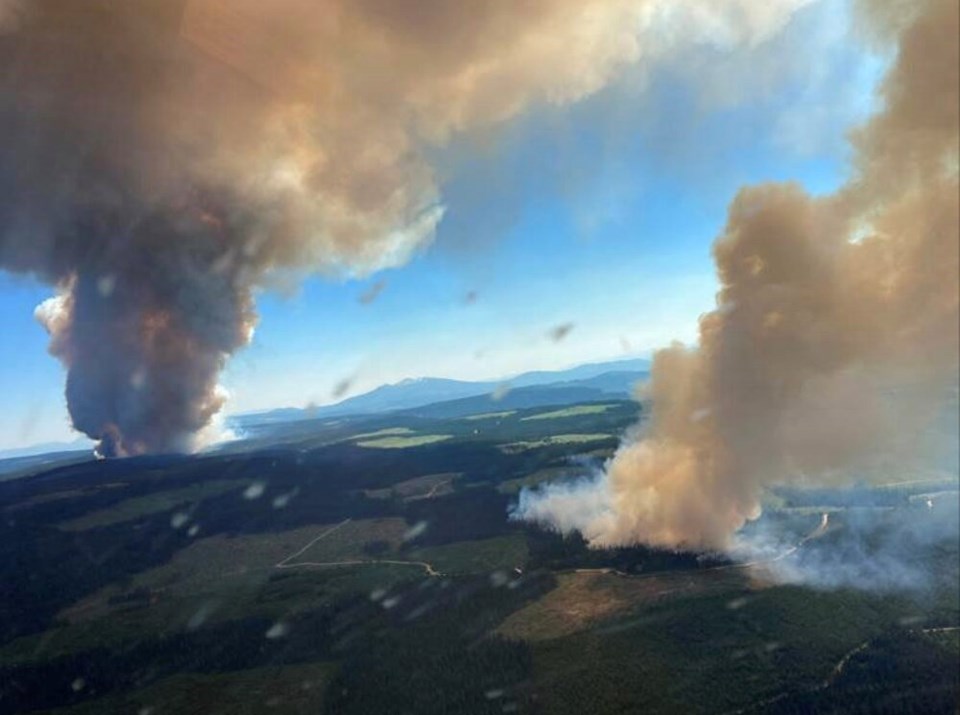An unparalleled heat wave that paralyzed British Columbia last week was made 150 times more likely due to human-caused climate change, said an international team of researchers Wednesday.
A heat dome engulfing the Pacific Northwest from Oregon to B.C. spiked temperatures well over 40 C in many communities. The town of Lytton set an all-time Canada-wide temperature record at 49.6 C. A day later, a wildfire ripped through the village, killing at least two people.
“The event was extremely rare. Our initial estimate is it was a one in a 1,000-year event in the present climate,” says Faron Anslow, a Victoria-based climate scientist from the Pacific Climate Impacts Consortium who collaborated on the study with 25 other scientists through the World Weather Attribution.
The team analyzed a vast quantity of historical temperature data going back to the 1800s. Then they ran climate models through over 4,000 simulations, tracing the likelihood of such an extreme event under different emission scenarios.
In the end, the study found the heat wave would have been “virtually impossible without human-caused climate change.”
Humans have already pumped enough carbon into the atmosphere to warm the planet by 1.2 C since the Industrial Revolution, according to the World Meteorological Agency. What happens in the coming decades depends on how fast the world’s economy moves away from fossil fuels and retains carbon-sucking ecosystems.
Under worst-case emission scenarios, the study found climate warming would lead to similar events every five to 10 years by the 2040s, when the world is expected to have undergone 2 C of human-induced warming.
But even under a less extreme scenario, Anslow says the results were “pretty similar.”
“By the middle part of the century, we’re going to start to see these type of events,” he tells Glacier Media.
“We didn’t think we’d be here right now.”
NO EVIDENCE OF CLIMATE TIPPING POINT
During the heat wave, emergency services across several Metro Vancouver municipalities were overwhelmed by a spike in calls.
So far, the BC Coroners Service has reported 579 more sudden deaths across the province when compared to the five-year average over the same period.
Then there were the billion sea creatures thought to have baked to death along B.C.’s coast, and the yet-to-be-tallied crop failures that have left fruit shrivelled on trees and vines.
It’s that devastating climate fallout Anslow and his colleagues are trying to warn of before it hits.
Anslow says the data does not point to a temperature tipping point, beyond which extreme events escape climate forecasts. However, he also says it’s not something that can be ruled out.
“Is there something that the models don’t capture well? Or is there something fundamentally different with climate when it reaches a certain temperature? We don’t have those answers yet.”
By all indications, the heat wave was an exceedingly rare weather event, he says.
“There’s nothing about having an event like this that makes it more likely tomorrow,” he says. “The odds still are one in a 1,000 for any given year, until we know otherwise.”
“But certainly, as we get out into the 2040s, we’ll very likely be seeing these happening again.”
Stefan Labbé is a solutions journalist. That means he covers how people are responding to problems linked to climate change — from housing to energy and everything in between. Have a story idea? Get in touch. Email [email protected].



